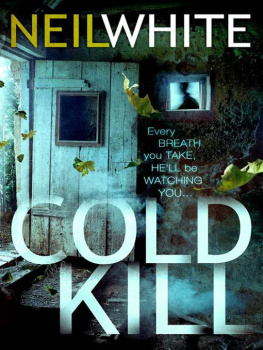Ackerman - Ah-choo!: the uncommon life of your common cold
Here you can read online Ackerman - Ah-choo!: the uncommon life of your common cold full text of the book (entire story) in english for free. Download pdf and epub, get meaning, cover and reviews about this ebook. City: New York, year: 2010, publisher: Grand Central Publishing;Twelve, genre: Home and family. Description of the work, (preface) as well as reviews are available. Best literature library LitArk.com created for fans of good reading and offers a wide selection of genres:
Romance novel
Science fiction
Adventure
Detective
Science
History
Home and family
Prose
Art
Politics
Computer
Non-fiction
Religion
Business
Children
Humor
Choose a favorite category and find really read worthwhile books. Enjoy immersion in the world of imagination, feel the emotions of the characters or learn something new for yourself, make an fascinating discovery.

- Book:Ah-choo!: the uncommon life of your common cold
- Author:
- Publisher:Grand Central Publishing;Twelve
- Genre:
- Year:2010
- City:New York
- Rating:4 / 5
- Favourites:Add to favourites
- Your mark:
- 80
- 1
- 2
- 3
- 4
- 5
Ah-choo!: the uncommon life of your common cold: summary, description and annotation
We offer to read an annotation, description, summary or preface (depends on what the author of the book "Ah-choo!: the uncommon life of your common cold" wrote himself). If you haven't found the necessary information about the book — write in the comments, we will try to find it.
Ah-choo!: the uncommon life of your common cold — read online for free the complete book (whole text) full work
Below is the text of the book, divided by pages. System saving the place of the last page read, allows you to conveniently read the book "Ah-choo!: the uncommon life of your common cold" online for free, without having to search again every time where you left off. Put a bookmark, and you can go to the page where you finished reading at any time.
Font size:
Interval:
Bookmark:

Copyright 2010 by Jennifer Ackerman
All rights reserved. Except as permitted under the U.S. Copyright Act of 1976, no part of this publication may be reproduced, distributed, or transmitted in any form or by any means, or stored in a database or retrieval system, without the prior written permission of the publisher.
Twelve
Hachette Book Group
237 Park Avenue
New York, NY 10017
Visit our website at www.HachetteBookGroup.com
www.twitter.com/grandcentralpub
Twelve is an imprint of Grand Central Publishing.
The Twelve name and logo are trademarks of Hachette Book Group, Inc.
First eBook Edition: September 2010
ISBN: 978-0-446-57401-3
Sex Sleep Eat Drink Dream: A Day in the Life of Your Body
Chance in the House of Fate: A Natural History of Heredity
Notes from the Shore
To Melanie Jackson
with warm thanks for twenty years of friendship and wise counsel
A family unit is composed not only of children but of men, women, an occasional animal, and the common cold.
OGDEN NASH
Its like so many pivotal points in life: the moment milk turns from sweet to sour, or a toddlers cheery mood tips into tantrum. One minute youre yourself, perhaps with a faint scratch in the back of the throat, nothing alarming. The next youre a vessel of full-blown congestive fury and malaise. Do you know what it is to succumb to such an insurmountable day-mare? An indisposition to do anything or to be anything; a total deadness and distaste; a suspension of vitality; an indifference to locality; a numb, soporifical good-for-nothingness; an ossification all over; an oyster-like insensibility to the passing events; a mind-stupor? Did you ever have a very bad cold?
To Charles Lambs bleating question, the vast majority of us can answer a resounding yes.
Wally Schirra certainly could. As commander of Apollo 7, the first manned mission after the fiery Apollo 1 launchpad disaster, Schirra shot into space in 1968 only to develop one of the most debilitating and famous colds in American history. About an hour after liftoff and only six hours after his prelaunch physical examination, Schirra experienced one of those transitional moments when a cold suddenly launched. The minor throat irritation rapidly evolved into clogging congestion and what on Earth would have been a raging runny nose. In weightless space, however, the mucus just hung about, filling his nose and sinuses; the only relief was forceful nose blowing, which battered his eardrums. Soon Schirras fellow crewmen, too, had succumbed to the virulent bug, and the three men hurtled through space grumpy, distracted, barely able to breathe or hear. Schirras daughter called the flight the ten-day cold capsule. The crewmen all returned to Earth safely, but none ever soared into space again. Their commander later appeared on TV ads for the decongestants used during the flight, holding up a space helmet and asking, You ever sneeze in one of these?
That decisive turning point, that moment a cold virus gains entrance and takes hold in the body, occurs in each of us as many as 200 times over a lifetime. Maybe youre down with one now, cursing that croupy little cough, filling your trash bin with soggy tissues. This book tells the story of a malady so universal its very name reflects its frequency. (Though when it strikes the high and mighty, it may bear the self-important moniker executive flu.) Why should we care about this petty plague? A single cold is, of course, mostly a minor annoyance. But if you take a moment to calculate just how much suffering this run-of-the-mill bug inflicts over a normal life span, youll see that it amounts to some five years of congestion, coughing, headache, sore throatand roughly a full year in bed. Wouldnt it be a good idea to get a grip on such a relentlessly regular visitor, to take a healthy interest in this unhealthy interloper?
Viewed from a distance, theres a lot about the common cold that defies common sense. Its name, for instance. The cold may be common but its still a little black hole of an ailment, ill understood. Moreover, talk as we might of the common cold, no single agent causes it but rather an army of different agents. And why cold? Because we feel chilly when we have one? Or because it occurs more often in the colder seasons? While its true that colds most often strike in cooler, wetter weather, any link to low temperatures is tenuous at best. Yet in many languages, the word for the ailment faithfully mirrors the word for coolnessraffreddore in Italian (from the Latin frigidus); resfriado in Portuguese; erkltung in Germanto catch a cold or a chill.
Why is the common cold still so common? The long, fruitless search for a cure made one cold research center the butt of British humor. A cartoon shows an elderly scientist in the laboratory at the Common Cold Unit in Salisbury, England, putting his arm around a younger scientist, saying, I know, I know! Theres no glamour in this branch of science, young manbut at least its a permanent job! If we can vanquish killer viruses such as polio, why in the world is there no vaccine or cure for the common cold?
Why are some colds like mice, timid and irritating; others like Lambs dragon, dragging us deep into miserable malaise for days at a time? Why do some people seem maddeningly resistant to colds while others seem to succumb after just seeing someone sneeze?
What is a cold, anyway? Can you actually fight one off? Which remedies really work, and which are hoaxes?
Scientists call this the golden age of the cold for good reason. For one thing, the odious cold is as prevalent as everperhaps more so. Children in this country get as many as 12 colds a year; adults, 2 to 4. (How many you get as an adult often hinges on whether youre exposed to children, who are often described as the major reservoirs of cold virus.) Modern society, it seems, has created an ideal environment for colds to jump from nose to nose. Globalization and the transfer of most work to the indoors means that we share more spaces and surfaces with other people than ever before. Our offices, gyms, and public spaces, where large numbers of people work and play shoulder to shoulder, are viral swapping grounds. Our day-care centers and elementary schools, where children cluster to share secretions, are cold-breeding swamps. Not since the trenches of World War I have germs been as efficiently shared as in todays child care centers, writes Harley Rotbart, M.D., vice chairman of pediatrics at the University of Colorado Denver School of Medicine.
This is also a golden age of understanding. What weve learned over the past decade or so has revolutionized our view of coldswhat they are, what they do to our bodies, how to stifle them, and whether its wise to do so. The common cold as a medical quest may seem low on the list of priorities compared with the more dire threats of cancer, heart disease, diabetes, and obesity. After all, a cold has never killed anyone. (Or has it?) Why would medical research dally with such an apparently dilettantish disease? When I started work on this book, my editor asked, Would I have to travel all the way to Wales to meet a credible cold expert? He had once commissioned a book on the quest to cure baldness, which turned out to be a very short book indeed, he said, because the author discovered that no medical researcher worth his salt would devote his time to the hair-loss issue when so many serious diseases needed to be treated.
Not so with the cold. Theres a whole department full of credible cold researchers right down the road from me at the University of Virginia Medical Center, busily harvesting fresh cold virus from the noses of cold-ridden donors and smearing the virus-laden secretions on telephones and light switches, computer keyboards, and refrigerators. Theyre delivering cold viruses directly to the nares of willing volunteers. Theyre observing the nose-picking habits of doctors and medical students. Theyre scooping up stuffed animals from the toy bins of pediatricians offices and TV remotes from homes and hotel rooms to sleuth for the presence of cold virus and testing nasal sprays, lotions, and cleaning products designed to abolish it.
Font size:
Interval:
Bookmark:
Similar books «Ah-choo!: the uncommon life of your common cold»
Look at similar books to Ah-choo!: the uncommon life of your common cold. We have selected literature similar in name and meaning in the hope of providing readers with more options to find new, interesting, not yet read works.
Discussion, reviews of the book Ah-choo!: the uncommon life of your common cold and just readers' own opinions. Leave your comments, write what you think about the work, its meaning or the main characters. Specify what exactly you liked and what you didn't like, and why you think so.

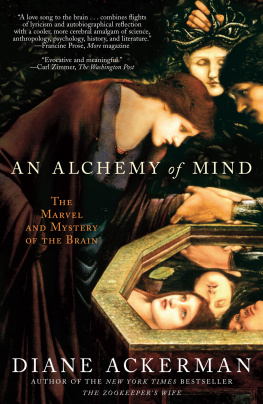
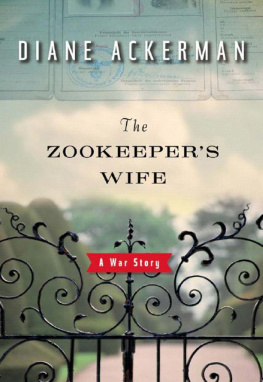




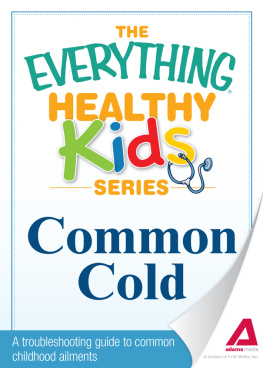
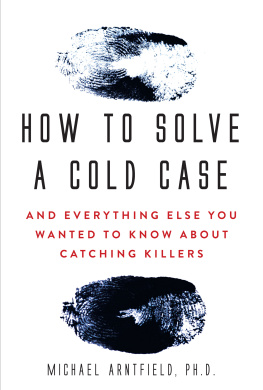
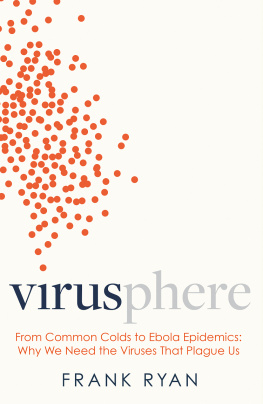
![Neil Schachter - The Good Doctors Guide to Colds and Flu [Updated Edition]: How to Prevent and Treat Colds, Flu, Sinusitis, Bronchitis, Strep Throat, and Pneumonia at Any Age](/uploads/posts/book/256863/thumbs/neil-schachter-the-good-doctor-s-guide-to-colds.jpg)


